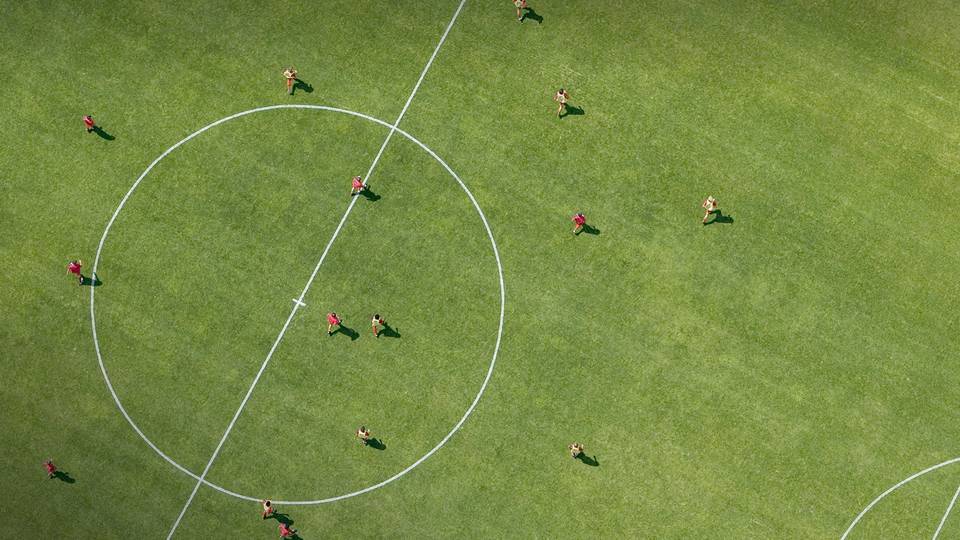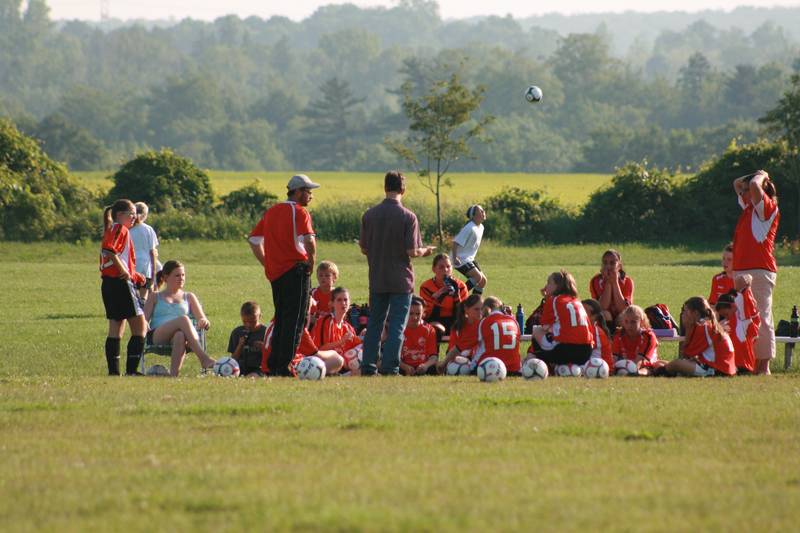Organising football at the U13 level presents a crucial phase in youth development, balancing competitive play with fundamental skill building. Youth football organisations across the UK provide structured environments where young players can thrive, typically arranging competitions based on age divisions to ensure fair play and appropriate developmental challenges. Well-structured U13 football organisations focus on technical skills, tactical understanding, and physical development while prioritising player enjoyment and long-term engagement with the sport.
The transition from mini-soccer to 11-a-side formats often occurs around this age group, requiring thoughtful organisation and coaching approaches. Different regional football associations implement varying structures, with some incorporating weight considerations alongside age brackets—though in the UK, age-based divisions remain predominant. These organisations create pathways for talented youngsters while ensuring all participants benefit from regular, well-organised matches and training sessions.
Football at this level serves as more than just a weekend activity; it becomes a foundation for lifelong participation in the beautiful game. While some Americans might refer to the sport as "soccer," in the UK it remains firmly football—a central part of community identity and youth development. Effective organisation at the U13 level requires careful scheduling, qualified coaching, and systematic record-keeping of player progress and match statistics to support ongoing development.
Establishing a U13 Football Team
Setting up a U13 football team requires careful planning and organisation. Creating the right structure, finding talented young players, and involving supportive adults are all essential elements for a successful youth football programme.
Team Structure and Roles
Every successful U13 team needs a clear organisational structure. Start by recruiting qualified coaches who understand youth development principles and possess appropriate coaching qualifications like FA Level 1 or 2.
The core team should include:
- Head Coach - Responsible for training sessions and match tactics
- Assistant Coach - Supports training and provides individual player attention
- Team Manager - Handles administrative duties and communication
- Treasurer - Manages team finances and equipment purchases
Consider appointing a safeguarding officer who ensures all child protection policies are followed. This is a legal requirement in the UK for youth sports teams. Establish clear communication channels between all roles to ensure smooth operations throughout the season.
Recruitment of Players
Finding the right players for your U13 squad requires a strategic approach. Begin by hosting open trials where young footballers can showcase their abilities. Advertise these sessions through local schools, social media, and community notice boards.
Consider these recruitment strategies:
- Organise talent identification camps during school holidays
- Create connections with local primary schools
- Establish relationships with other clubs for potential player recommendations
- Use simple registration systems to collect player information
Aim for a squad of 15-20 players to allow for substitutions and absences. Record player performance data during trials to make objective selection decisions. Many grassroots teams now use digital tools to track player development across multiple metrics.
Involvement of Adult Members
Parents and guardians play a crucial role in supporting a U13 football team. Hold an initial meeting to explain your coaching philosophy, team expectations, and how adults can positively contribute to the team environment.
Create a parent code of conduct that outlines appropriate sideline behaviour during matches. This helps establish a positive atmosphere for young players to develop.
Encourage adult volunteers to take on specific roles:
- Match day support - Setting up equipment and preparing refreshments
- Transport coordination - Organising travel to away fixtures
- Fundraising - Planning events to support team finances
- Social media management - Sharing team news and match reports
Regular parent meetings throughout the season help maintain good communication. Many successful U13 teams in British youth soccer leagues thrive because of strong adult involvement supporting the young players' development.
U13 Football Development Programs
U13 football programs focus on developing technical skills while emphasizing proper training methodologies and player safety. These programs serve as crucial stepping stones for young footballers who are transitioning to the 11-a-side format and more complex tactical understanding.
Skill Development and Training
At the U13 level, training programs prioritise the refinement of fundamental techniques alongside introducing more advanced tactical concepts. Players at this age should work on precise passing, first-touch control, and positional awareness during structured sessions.
Small-sided games remain valuable training tools, allowing more touches on the ball while developing decision-making abilities. Many successful U13 programs implement a 70/30 split between technical work and match-related scenarios.
Progressive training loads are essential, with sessions typically lasting 75-90 minutes, 2-3 times weekly. Development pathways often include:
- Technical drills: Ball mastery, passing combinations, finishing exercises
- Tactical understanding: Positional responsibilities, basic formation principles
- Physical development: Age-appropriate strength and agility work
Elite development programs utilise performance data to track progress, with tools available to measure improvements in key metrics like passing accuracy and distance covered.
Health and Safety Considerations
Proper safeguarding procedures are paramount in U13 football environments. All coaches should possess appropriate qualifications, including first aid certification and safeguarding training.
Physical development varies significantly at this age, requiring individualised approaches to training loads. Monitoring fatigue is crucial—rest periods between intense sessions help prevent overuse injuries that commonly affect growing bodies.
Nutrition education becomes increasingly important, with players needing guidance on proper fuelling for training and match days. Hydration protocols should be established and consistently followed.
Heading practices must follow current FA guidelines, which limit repetitive heading exercises for this age group. Coaches should implement a gradual introduction to heading technique using appropriate lightweight balls.
Mental wellbeing deserves equal attention, with competitive pressures potentially increasing at U13 level. Creating supportive team environments where players feel valued beyond their performance helps establish positive football experiences.
Managing U13 Football Teams
Managing a U13 football team requires careful planning, strong leadership, and a focus on player development. Successful team management at this level balances competitive play with educational opportunities for young players who are still developing their skills and understanding of the sport.
Coaching and Mentoring
Effective U13 coaches understand the unique developmental stage of players aged 12-13. This age group requires technical training that builds upon basic skills whilst introducing more complex tactical concepts. Coaches should maintain a positive environment where mistakes are viewed as learning opportunities.
Training sessions should be structured yet enjoyable, with a mixture of skills practice and game scenarios. Plan sessions in advance with clear objectives for each drill.
Communication is vital – use simple, clear instructions and demonstrate techniques whenever possible. Players at this age respond well to visual learning.
Set realistic expectations and celebrate progress, not just results. Remember that player development varies significantly at this age due to physical growth differences.
Encourage leadership skills by rotating captain responsibilities and involving players in problem-solving during training.
Team Logistics and Scheduling
Organising a U13 team requires robust administrative systems. Create a season calendar that includes all matches, training sessions, and tournaments well in advance to help families plan accordingly.
Establish clear communication channels with parents through email, messaging groups, or team management features on platforms like teamstats.net. Regular updates about fixtures, kit requirements, and transport arrangements are essential.
Consider training frequency carefully – twice weekly is common for U13 teams, with sessions typically lasting 60-90 minutes. Avoid scheduling conflicts with school commitments.
Maintain detailed player records including:
- Contact information
- Medical considerations
- Player attendance
- Performance tracking
Transport logistics can be challenging, so consider implementing car-sharing rotas among parents. This builds community whilst ensuring all players can attend away matches.
Equipment management is also crucial – designate responsibility for match kits, training equipment, and first aid supplies. Having an adult member responsible for these logistics takes pressure off coaches.
Competitions and Leagues
Youth football competitions provide structured environments where U13 teams can develop skills while experiencing competitive play. These events foster player growth through exposure to different playing styles and tactical approaches.
Local and Regional Tournaments
U13 football tournaments operate at various levels throughout the UK, from local council-run competitions to county-wide championships. Most local football associations organise weekend festivals where multiple clubs gather for round-robin style competitions.
Regional tournaments often follow a group stage format before progressing to knockout rounds. These events typically run during school holidays, with Easter and summer being particularly popular periods for multi-day competitions.
Many tournaments offer different tiers based on ability, ensuring appropriate challenges for all participating teams. This tiered approach prevents mismatches and creates a more enjoyable experience for young players.
Notable U13 competitions include county cups, regional champions leagues, and development tournaments hosted by professional club academies.
Fair Play and Sportsmanship
Fair play principles are fundamental to U13 competitions, with many leagues implementing specific codes of conduct for players, coaches and spectators. These guidelines emphasise respect for officials, opponents and the game itself.
Some tournaments award fair play points alongside match results, encouraging positive behaviour throughout competitions. Teams can be recognised for their sporting conduct even if they don't win the overall tournament.
Officials at this level are trained to explain decisions clearly to young players, helping them understand rules rather than simply enforcing them. This educational approach contributes significantly to player development.
Many leagues now use digital platforms to track disciplinary records, with accumulated yellow and red cards potentially affecting tournament eligibility. This accountability helps maintain standards of behaviour across competitions.












